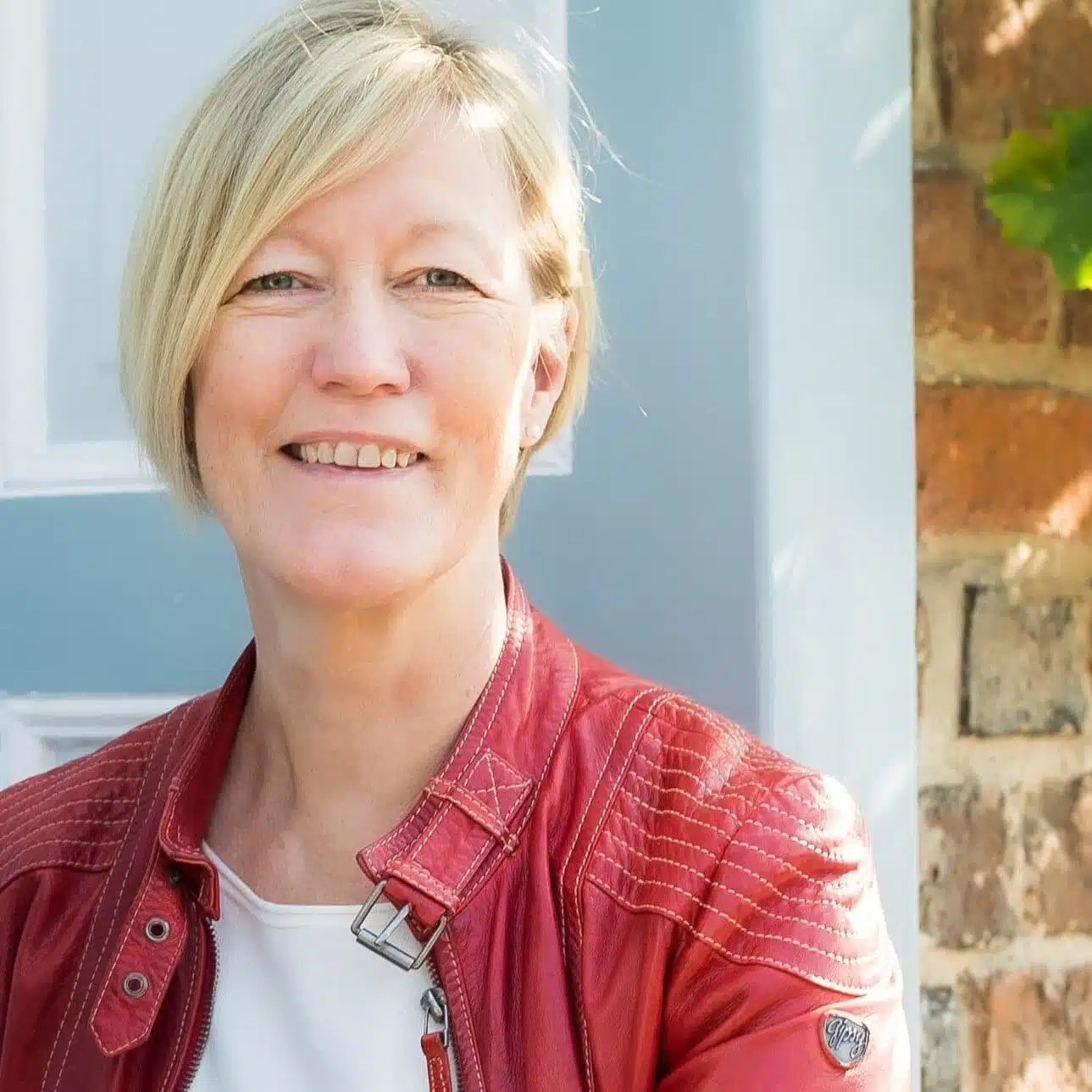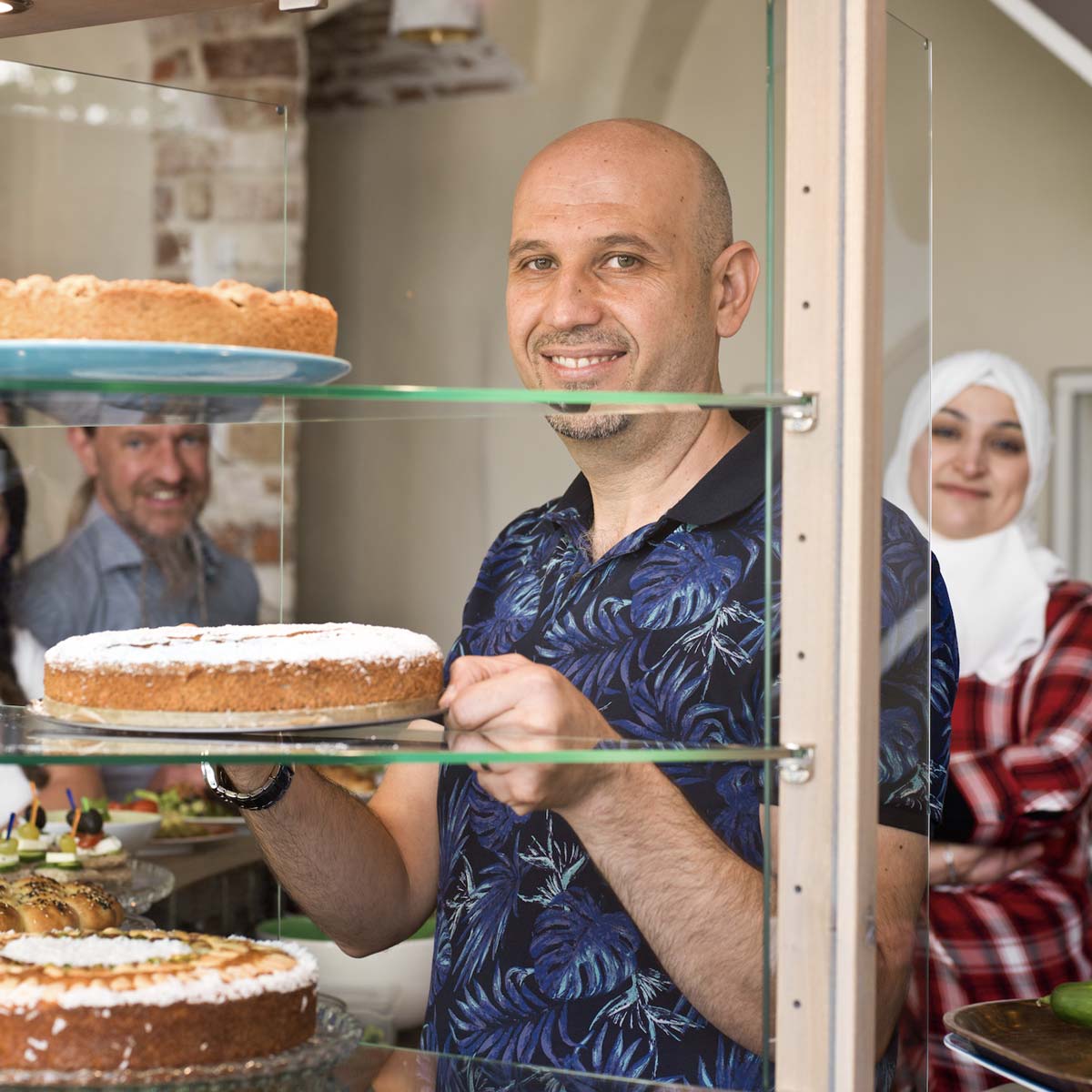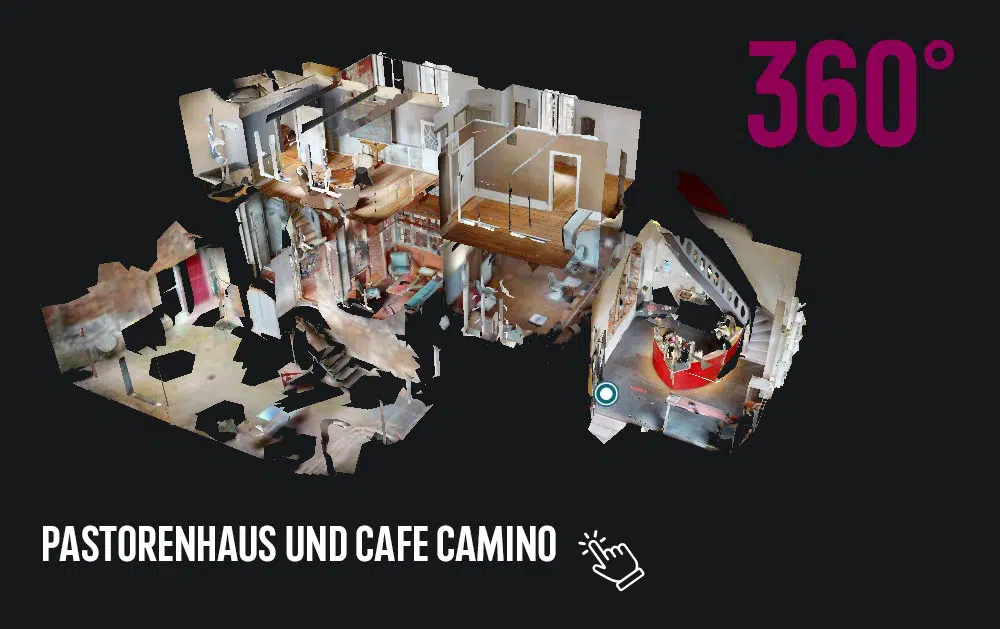“There is never a pilgrim who returns home without one less prejudice and one new idea.”
With this apt remark by the English humanist Thomas Morus, I would like to take you first on a short mental pilgrimage to the Middle Ages, then to the pastor’s houses of St. Jakobi, and finally to a very special café: the Café Camino, named after the Camino de Santiago, the Way of St. James. Everything is connected to everything. You will see!
“In gotes namen fara wir” (Forth in your name, O Lord, we go)
The pilgrim song ‘In gotes namen fara wir'( Forth in your name, O Lord, we go) from the 14th century comments on the individual stations and the dangers of the Way of St. James. Lübeck lay at the intersection of three pilgrimage routes, the Via Baltica, the Via Scandinavica and the Via Jutlandica. Here people came to rest for a short time. For a prayer in St. Jacob’s, a break in the Hospital of the Holy Spirit or a good meal in the pilgrim hostel. Between the 11th and 14th centuries, millions of people were on the move in pilgrim costume with the pilgrim badges on their coats or hats. On foot, by donkey, carriage and horse or by water. They were drawn to sacred and ancient sites.
They walked in the footsteps of Christ to seek out healers, to give thanks for a healing, to ask for the blessing of a project, to repent, and ultimately to obtain eternal salvation. Pilgrimages were dangerous and expensive. Along the way, dangers lurked from wild animals, predatory raids, swindlers, or disease.
Vicarious pilgrimages were therefore commonplace: those who could afford it sent a “pilgrim brother” or a “pilgrim sister” to the holy places to pray for the soul of the client. Quite a small personal risk for the person staying at home. To the towns along the way, the pilgrims brought their ideas, traditions and beliefs. Lübeck was also for this reason a cosmopolitan place where cultural influences mixed. Moreover, the believers brought a good income not only to the cobblers who had to fix the tattered shoes.
Pilgrim traces in Lübeck
Traces of this time can still be discovered in Lübeck today. Many citizens from Lübeck visited places of pilgrimage in Germany, but also in Riga, Einsiedeln, Tours and Santiago de Compostela. Numerous pilgrimage sign findings testify to this. A central place in the events has always been occupied by St. Jacob’s, which is still open to pilgrims today. In the church interior, the attentive guest will find St. James with the pilgrim’s staff and shells in the sandstone – the pilgrim’s sign from Santiago de Compostela. Right next door are the pilgrims’ hostel and the four church houses, where organists, choirmasters, widows of church officials and pallbearers once lived.
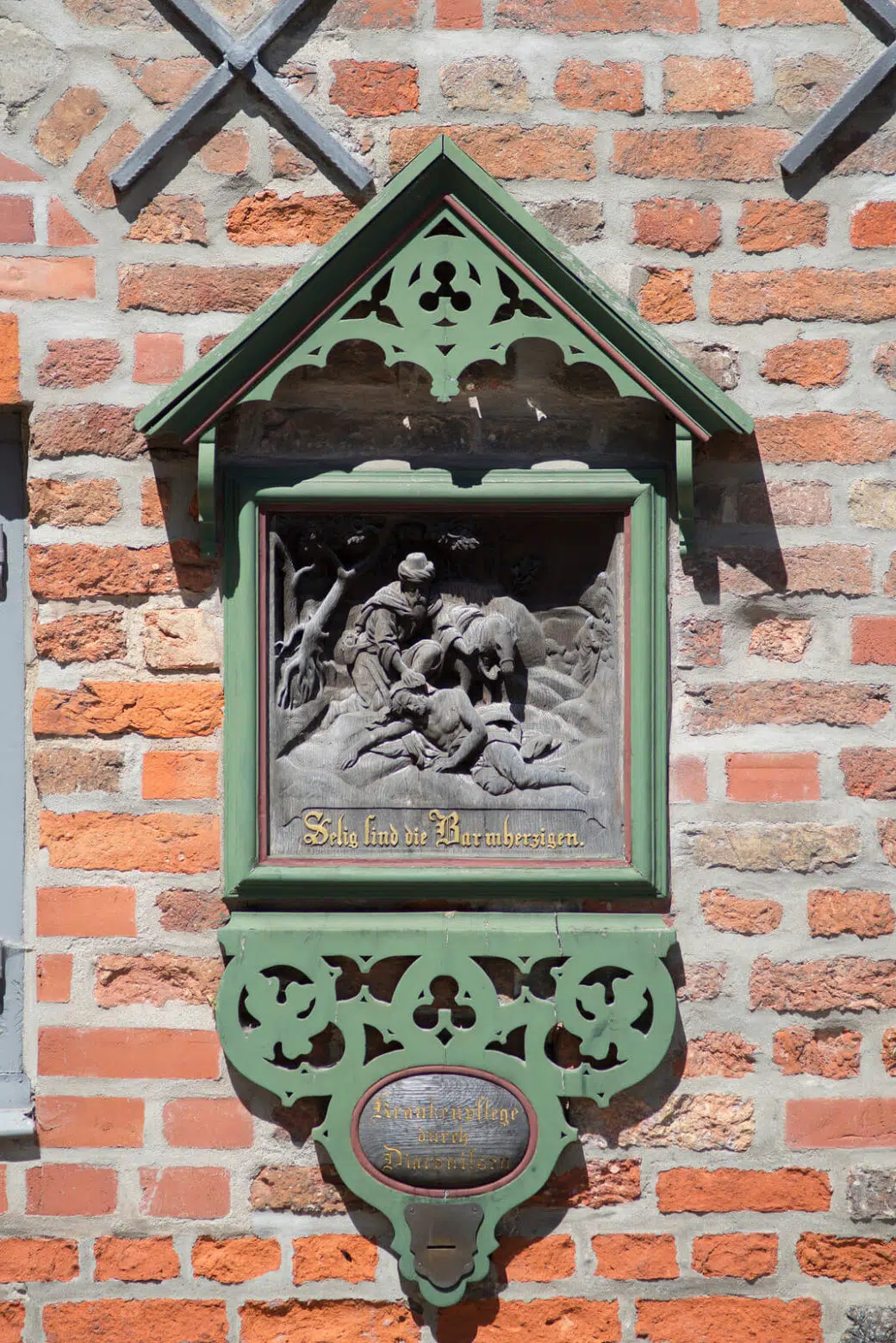
In Lübeck you can also walk the pilgrimage route of the merchant Heinrich Constin. It is one of the oldest ways of the cross in Germany, a path with seven stations, which Constin donated after his pilgrimage to the Holy Land, to which he set out in 1468. The 1,650-meter-long path named after him begins at a sand-lime relief at St. Jakob’s and ends at a late-Gothic brick cottage on Jerusalemsberg not far from the Trave river.
Pastors’ houses St. Jakob’s
In the course of the 13th century, the first two pastors’ houses had been built at a Latin school built shortly before. In 1601/02 their reconstruction and the construction of house 3 and 4 in the Renaissance style took place. In 1866, the cloaca of the former school was recorded. These were attended mainly by the sons of captains and merchants. In the uncovered cesspool, about the construction of which a note is preserved in the oldest treasury book of the town from 1338, the archaeologists found, among other things, inkwells, wax tablets, arithmetic pennies and board game pieces. On the wax tablets, the drawings of the medieval students were still visible as well as the text of some tablets was still legible. Isn’t that just fascinating?
Café Camino
These pastors’ houses are home to a charming pilgrim café: Café Camino. Unique in Lübeck! The historic interior alone is worth a visit. The hallway with the ceiling adorned with a painting from the 17th century. The wooden kitchen fixture typical for Lübeck. Simply perfect to enjoy the delicious mix of German, Arabic, Spanish and French cuisine of the “Café Camino”. Ayman Al Kassar and his wife Nada are originally from Damascus. They came to Lübeck with their three daughters in December 2015, and their baby son was born in Germany.
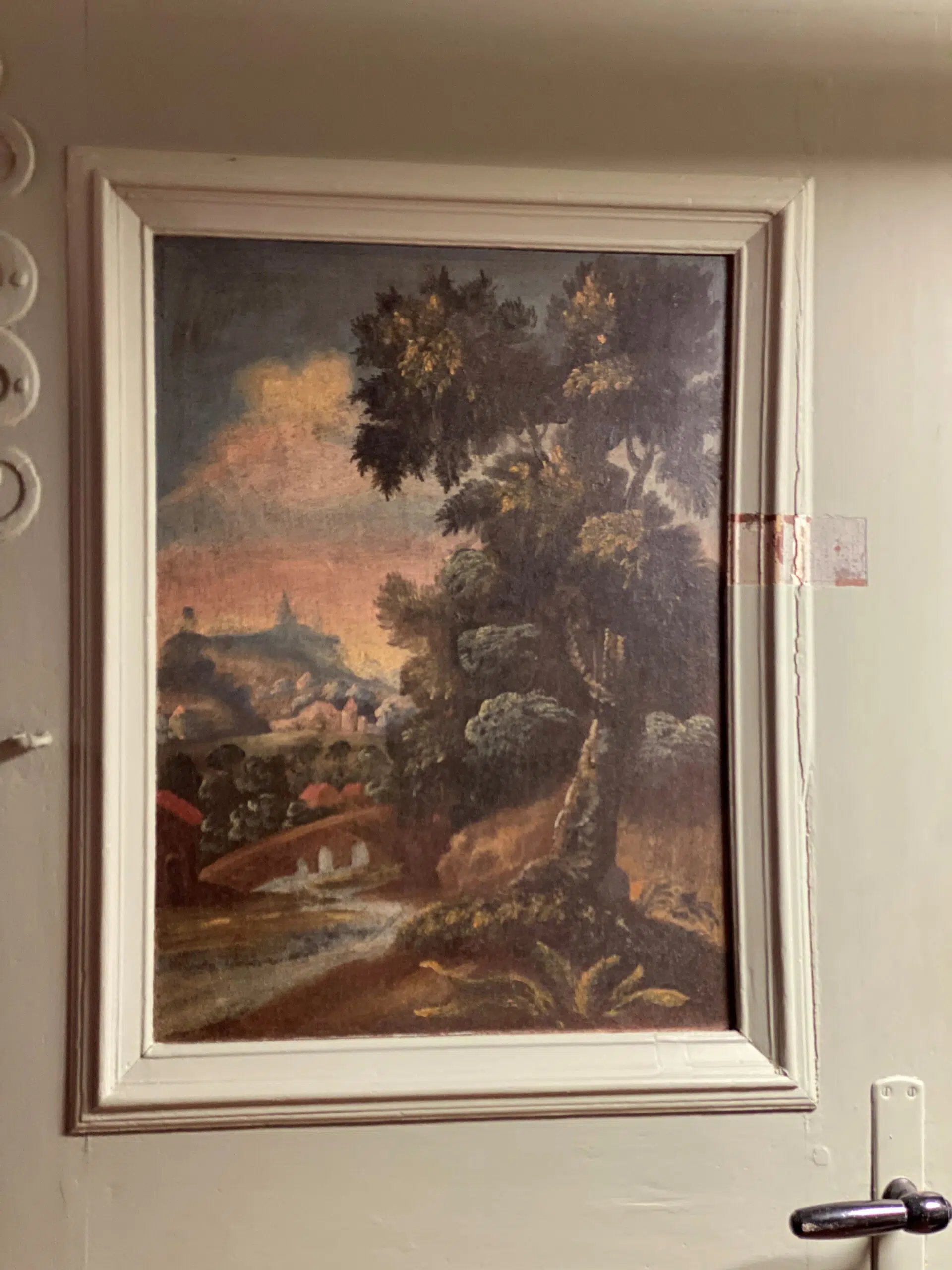
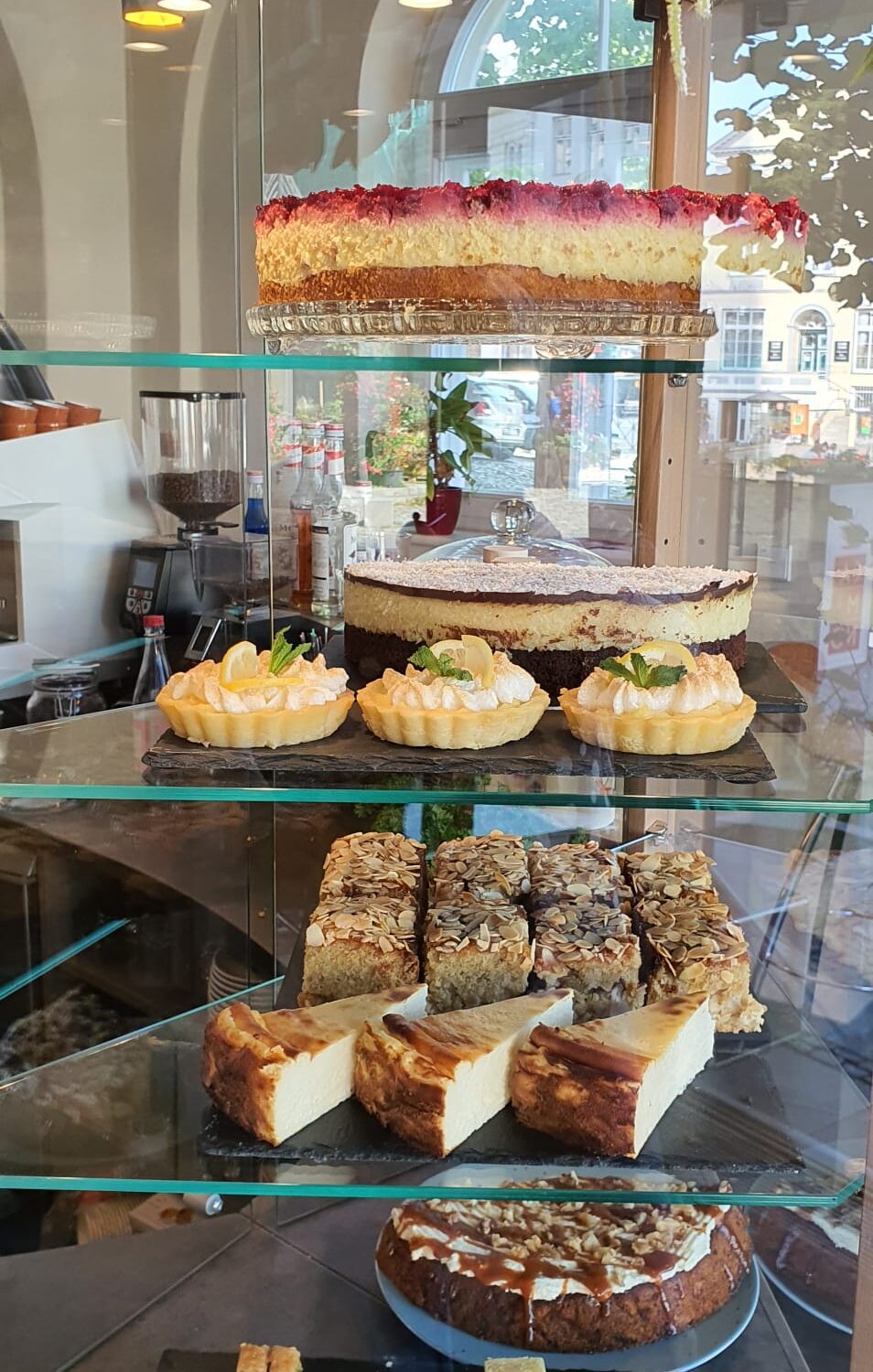
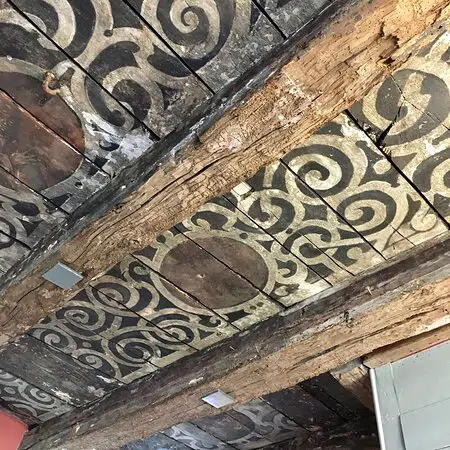
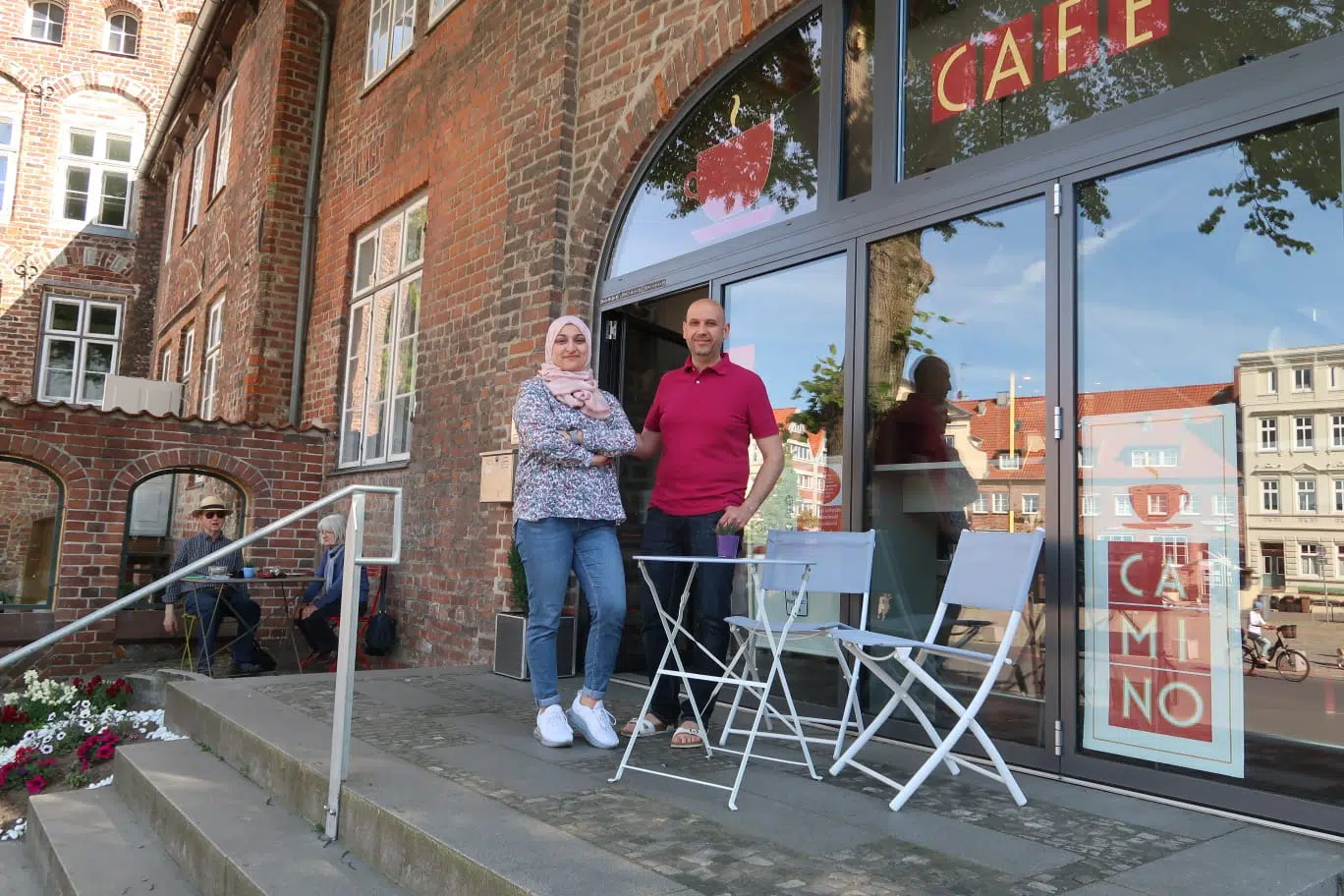
a real family business
The family has been running the café in the historic premises since 2019. Ayman and Nada are the heart and soul of this place. The two older daughters also help in the service. In no time we are chatting animatedly about …. languages, what else? You know that my passion lies with studying languages. Syriac Arabic is closely related to the Lebanese, Palestinian, and Jordanian dialects. Yes, all right, I digress….
Nada is responsible for cooking and baking. It is easy to trace Nada’s great passion as soon as you look into her bright eyes. She brought back fantastic recipes from her Syrian homeland. And she is always trying out new things. All guests should feel equally comfortable with the Al Kassar family. There is an extensive breakfast offer, which is oriented to the stations of the Way of St. James.
In addition, savory dishes such as manakish and hummus are on the menu. And, of course, cakes and pastries. Popular ingredients for Arabic pastries are honey, almonds, pistachios, dates and figs. I recommend ordering a cup of coffee – a hot drink made from date seeds – to go with it. My favourite is the Daffee with cinnamon. Completely caffeine-free and also very healthy. By the way, there’s another fascinating story behind the Daffee that I’ll link you to here. Everything is connected to everything.
In the best spirit of Thomas More’s thoughts, I encourage you to visit Café Camino.
Shukran, dear Nada and Ayman!
